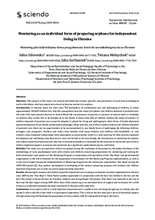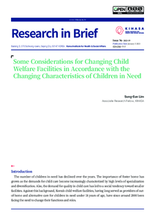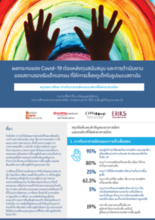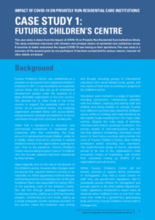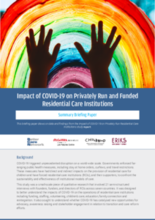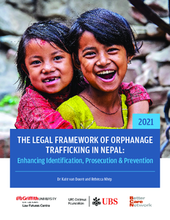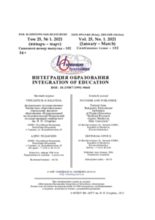Displaying 121 - 130 of 1460
The purpose of the study is to analyze and define the content, specifics, and procedures of social and psychological work with citizens who have expressed a desire to become mentors for orphans.
This paper explores Lagos private schools as crucial sites of care for children with parents in the diaspora.
This brief discusses ways in which the roles and functions of Korea’s child welfare facilities should change to better meet the diverse needs of children in need.
This study aims to explore the experiences of Ghanaian care leavers to discern the factors that promote and impede their educational attainment.
This paper explores the impact of the Power to Kids: Respecting Sexual Safety programme, which involved capacity‐building workers to have ‘brave conversations’ with children and young people in residential care.
เอกสารสรุปนี้ดึงข้อมูลและผลการวิจัยจากรายงาน: ผลกระทบของ COVID-19 ต่อสถาบันการดูแลที่อยู่อาศัยที่ดำเนินการโดยเอกชน: ข้อมูลเชิงลึกและนัยสำหรับการสนับสนุนและการให้ความรู้
This case study is drawn from the Impact of COVID-19 on Privately Run Residential Care Institutions Study. It presents a summary of the account given by one participant.
This briefing paper draws on data and findings from the report: Impact of COVID-19 on Privately Run Residential Care Institutions: Insights and Implications for Advocacy and Awareness Raising.
This study examines Nepal’s compliance with international legal obligations, its child protection and anti-trafficking laws, and its criminal and procedural laws that regulate illegal transfer and trafficking of children. The study also raises issues regarding victim identification, inspection of child care homes and complaint mechanisms.
The study sought to reveal socio-psychological factors of successful integration of institutionalized adolescents into mainstream schools.

